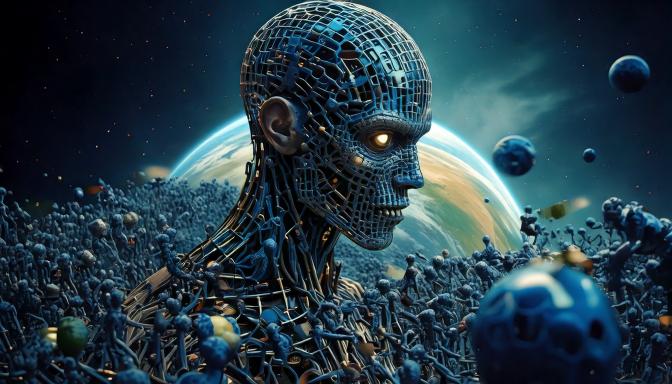Artificial intelligence is evolving at an unprecedented rate, and two significant voices have stepped forward to warn about its potential dangers. Scarlett Johansson, a vocal critic of non-consensual AI-generated content, and former Google CEO Eric Schmidt, who fears AI’s misuse by rogue states, are calling for urgent regulation and oversight.
Johansson recently spoke out after an AI-generated deepfake featuring her went viral, raising concerns over the technology’s ability to spread misinformation. Meanwhile, Schmidt warns that AI could be weaponized by hostile nations, leading to biological warfare and large-scale cyberattacks. Their messages underscore a growing debate about AI’s risks, ethical boundaries, and the responsibility of governments and corporations.
What’s Happening & Why This Matters
Scarlett Johansson vs. AI Deepfakes

Johansson has long been vocal about AI-generated impersonations, but the latest deepfake incident took it to another level. A viral AI-generated video featured Johansson, along with other Jewish celebrities, appearing to oppose Kanye West’s antisemitic remarks. The video, created without her consent, was set to a remix of ‘Hava Nagila’ and displayed the slogan ‘Enough is enough’. Johansson condemned the deepfake, emphasizing AI’s threat to truth, identity, and reality, and urged lawmakers to take immediate action before the issue escalates. She stressed that AI misuse is a bipartisan issue affecting global security.
Eric Schmidt’s Warning: AI in the Hands of Rogue States

While Johansson focuses on AI’s impact on personal identity, Schmidt warns about AI’s potential for large-scale destruction. He believes AI could be used to create bioweapons, execute cyberattacks, and manipulate global economies. Countries such as North Korea, Iran, and Russia could weaponize AI for malicious intent, leading to unprecedented security threats.
Schmidt stressed the need for international oversight, warning that AI’s rapid development surpasses current regulatory efforts. He also advocated for U.S. export controls on AI-related microchips to slow adversaries’ progress in developing autonomous systems.
AI’s Growing Influence and Limited Regulation
Despite growing fears, AI regulation remains inconsistent worldwide. The EU and China have taken proactive regulatory steps, while the U.S. remains stalled on federal AI legislation. The UK refused to sign a global AI safety agreement, citing concerns over ‘practical clarity’. Schmidt warned that Europe’s restrictive AI policies could stifle innovation while simultaneously acknowledging the importance of government oversight. Meanwhile, Johansson continues advocating for stronger legislation against non-consensual AI impersonations, urging swift action before deepfakes spiral out of control.
TF Summary: What’s Next
Concerns over misuse, misinformation, and global security threats are growing as AI continues reshaping industries and societies. Johansson warns about AI’s ability to distort reality, while Schmidt urges world leaders to prevent hostile nations from weaponizing the technology. With deepfakes spreading falsehoods and rogue states advancing AI-powered cyber threats, the demand for stronger oversight, ethical boundaries, and global cooperation has never been more urgent.
— Text-to-Speech (TTS) provided by gspeech


